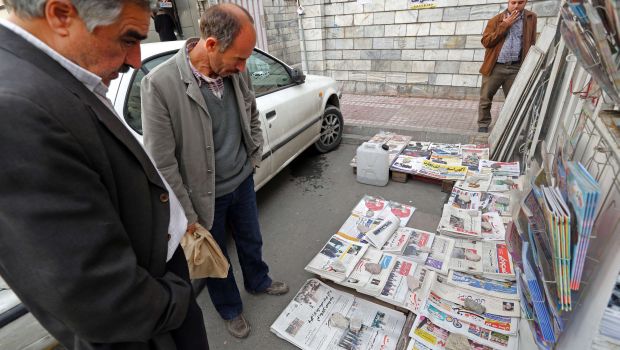There have been constant calls for the liberation of the Arab media, the abolishment of censorship and demands for ministries of information to promote freedoms almost without limits or restrictions, like those enjoyed in North America and Europe. But the people making these demands forget that the media is just a cog in the larger social machine, part of an interactive system.
Freedom of the press is explicitly guaranteed in constitutions around the world. In the West, the press is described as the “fourth estate,” complementing the main three branches of power; the executive, the legislative and the judiciary. It is the role of the fourth estate to observe and monitor the actions of the government. The freedom to do so is guaranteed by law and protected by society on the grounds that the press itself plays a part in protecting society from corruption and tyranny.
Without that understanding of the role of the press in putting checks and balances on the state’s authority, demands for freedom of the press are often expressed in terms of “freedom of expression,” as we so often see in the Arab world. If there is freedom of the press without corresponding responsibilities, however, there is a chance the media could turn into an extremely fertile ground for the creation of strife and the exacerbation of crises. How else are we to understand the trivialities and even utter chaos we see on TV and social networking sites in this part of the world? Today, we in the Arab world need to regulate and organize the press, and we need to build a barrier between its freedom and its potential to incite chaos. Freedom without responsibility can take a barbaric turn that affects the entire society.
Some people may genuinely enjoy the quantity of satellite TV channels and the infinite number of websites available for their entertainment. But in general, the content we have on the Internet—and especially on social media sites such as Facebook and Twitter—is misleading intellectual pollution that leads to the dangerous fragmentation of an already fragile society. This lack of professional media outlets is a negative for society, deepening frustration among people, entrenching conspiracy theories and calling all state institutions and national figures into doubt.
What we in the Arab world need is a system of regulation that can protect both society and the profession of journalism. We need to draw clear fault lines that delineate the freedoms and responsibilities of the press. We need to mark out the boundary between criticism and defamation. This can only be achieved through clear and effective laws.
Freedom of expression is a legitimate demand; the freedom is instrumental to achieving a renaissance in society. But we must always remember that freedom of expression on its own, without corresponding responsibilities and limits, can be used to achieve nefarious purposes, as we are seeing in some places today.
I already know this opinion will be met with a considerable wave of objections. Nevertheless, perhaps the argument and dialogue it generates will prove to be beneficial.
